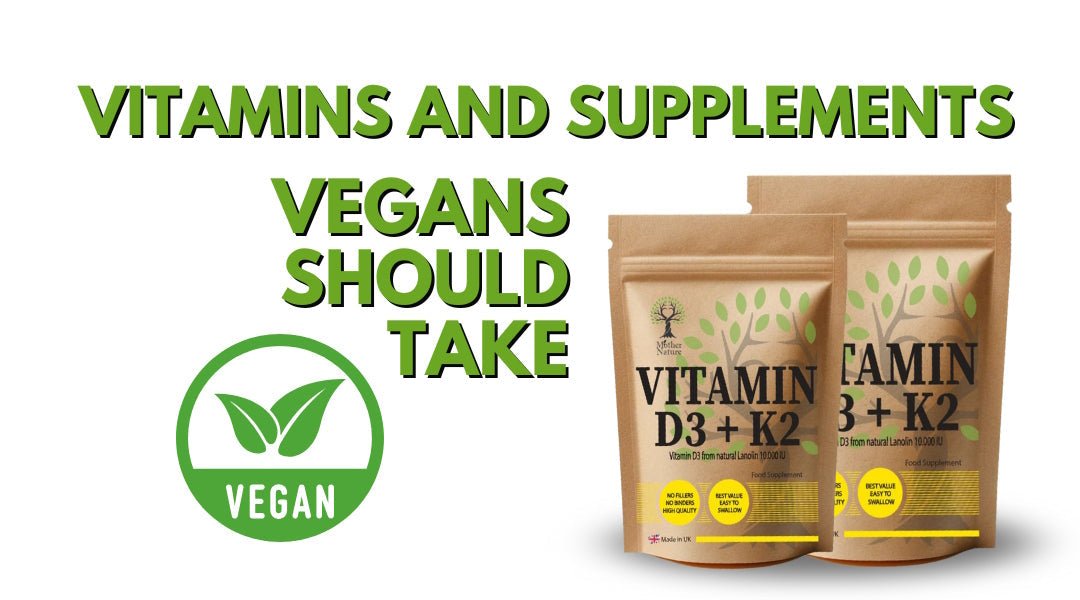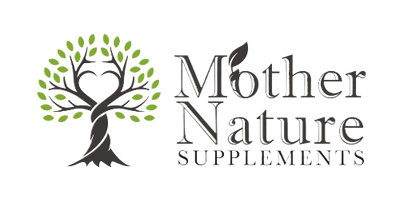Vitamins And Supplements Vegans Should Take

As veganism continues to grow in popularity, more people are turning to plant-based diets for health, ethical, or environmental reasons. A well-planned vegan diet can provide many of the nutrients your body needs, but certain vitamins and minerals may be more challenging to obtain from plant sources alone. Here, we’ll explore key vitamins and supplements vegans should consider to ensure they are meeting their nutritional needs.
Vitamin B12
Why It’s Important: Vitamin B12 is crucial for nerve function, red blood cell production, and DNA synthesis. A deficiency can lead to anemia and neurological issues.
Sources for Vegans: Vitamin B12 is primarily found in animal products, so vegans should aim to incorporate fortified foods such as plant-based milks, nutritional yeast, and breakfast cereals. However, supplementation is often recommended to ensure adequate intake, typically in the form of daily multivitamins or dedicated B12 supplements.
Vitamin D
Why It’s Important: This vitamin plays an essential role in bone health, immune function, and reducing inflammation.
Sources for Vegans: While some plant milks and fortified foods contain Vitamin D, sunlight is the most natural source. During the winter months or for those living in less sunny climates, a Vitamin D2 or D3 (derived from lichen) supplement can help maintain healthy levels.
Omega-3 Fatty Acids
Why They’re Important: Omega-3s, particularly EPA and DHA, are essential for heart health, brain function, and reducing inflammation.
Sources for Vegans: Although ALA, another form of omega-3, is found in chia seeds, flaxseeds, and walnuts, the body converts it inefficiently to EPA and DHA. Therefore, vegans might consider an algae-based omega-3 supplement to directly obtain EPA and DHA.
Iron
Why It’s Important: Iron is vital for making hemoglobin, a component of red blood cells that carries oxygen throughout the body.
Sources for Vegans: Plant-based iron sources like lentils, chickpeas, tofu, and quinoa are non-heme and not as well absorbed as heme iron from animal products. To enhance absorption, pair these foods with vitamin C-rich fruits and vegetables, and consider an iron supplement if needed, particularly for women with heavy menstrual cycles or those with diagnosed deficiencies.
Calcium
Why It’s Important: Calcium is necessary for strong bones and teeth, as well as muscle function and nerve signaling.
Sources for Vegans: Fortified plant milks, tofu, almonds, and leafy greens like kale can boost your calcium intake. If dietary sources are insufficient, a calcium supplement can help in meeting daily requirements.
Iodine
Why It’s Important: Iodine is crucial for thyroid function, which regulates metabolism.
Sources for Vegans: Though sea vegetables like seaweed are rich in iodine, their content can vary widely. Alternatively, using iodized salt or taking an iodine supplement can help ensure steady intake without overconsumption.
Zinc
Why It’s Important: Zinc supports immune function, wound healing, and protein synthesis.
Sources for Vegans: Focus on eating whole grains, legumes, nuts, and seeds, which contain zinc. However, absorption may be hindered by phytates in these foods, so some vegans might benefit from a zinc supplement if dietary sources aren’t sufficient.
Conclusion
A balanced and varied vegan diet can support overall health, but it's important to be mindful of potential nutrient gaps. By being proactive and considering strategic supplementation, vegans can ensure they meet their nutritional needs and maintain optimal health. Always consult a healthcare professional or registered dietitian when making significant changes to your supplement routine to tailor advice to your specific health needs.
Ensuring adequate nutrient intake is crucial for maintaining overall health and preventing chronic diseases. Among the essential nutrients, vitamin D plays a significant role in promoting healthy bones and supporting immune function. While dairy products have traditionally been a reliable source of this vital nutrient, those following a vegetarian diet or opting for vegan foods often face challenges in maintaining adequate levels of vitamin D.
To address potential vitamin D deficiencies, individuals, particularly those in vegan populations, are encouraged to consider vitamin D supplements, including vegan supplements specifically formulated to meet their needs. Additionally, incorporating oily fish into one's diet can naturally boost vitamin D levels, though this may not align with plant-based dietary choices. Instead, plant-based foods fortified with vitamin D, such as certain non-dairy milks, are becoming increasingly available as vegan sources.
Balanced diets encompassing a variety of food groups can help mitigate the risk of vitamin deficiencies. For example, pumpkin seeds, hemp seeds, and sesame seeds are not only rich in alpha-linolenic acid but also contribute essential minerals to the diet. These seeds, along with leafy vegetables, play an important role in increasing non-heme iron intake, crucial for those relying on iron from plant sources. To enhance iron absorption, pairing these with vitamin C-rich foods can be beneficial.
Vitamin B12 status is another concern in vegetarian nutrition due to its abundance in animal foods. The intake of vitamin B12 supplements, alongside ensuring adequate daily allowances of key nutrients like Vitamin B2 and folic acid, is vital for preventing deficiencies that can lead to neurological issues and compromised cognitive function.
Pregnant women, in particular, should pay careful attention to their nutrient intake, ensuring they receive sufficient micronutrient intake and maintain healthy ferritin levels. Supplementing with vegan vitamins can aid in meeting these nutritional characteristics without relying on animal-based products.
A systematic review of dietary patterns highlights the link between nutrient intake and the prevention of chronic diseases, including cardiovascular diseases. By focusing on sustainable food systems and incorporating reliable sources of nutrients, individuals can support their overall health while adhering to dietary preferences.
Finally, addressing nutrient intake and ensuring a balanced diet can help mitigate risks associated with blood pressure and blood clotting. Maintaining an optimal intake of essential vitamins and minerals, including a consideration of iodine content and vitamin K, will support the development of healthy bones and mitigate the potential side effects such as hair loss, ultimately contributing to a healthier lifestyle across various population groups.







